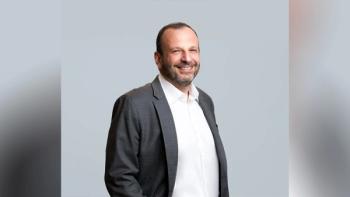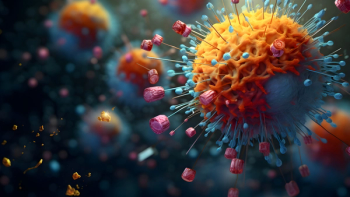
- Pharmaceutical Executive-02-01-2006
- Volume 0
- Issue 0
Global Report: Moving Towards Generic Biologics
In Europe, seven of the top-10 injectible drugs are biologics. Generic versions could be priced 25 to 40 percent lower than prescriptions.
Generic copies of biologic medicines could finally reach the market in Europe this year, leaving US companies wondering if FDA will eventually follow suit. The European Medicines Agency (EMEA) hopes to complete its guidelines for the approval of these biosimilar drugs early this year, paving the way for the approval of biogenerics—and a potential goldmine for the generics companies.
Sarah Houlton
EMEA held a workshop in Paris in December, where stakeholders from across the industry shared their views on the introduction of the guidelines. The first guidelines are expected to cover erythropoietin, insulin, somatotropin and granulocyte-colony stimulating factor. Guidelines for interferons are also on the drawing board.
Biologic medicines are chemically different from small molecule drugs. Generally speaking, it is fairly uncomplicated to establish two batches of active pharmaceutical ingredient (API) as chemically identical to one another, with sufficiently similar impurity profiles. Full clinical trials are therefore not needed: A generics company can use an abridged registration procedure, and carry out bioequivalence studies to prove that its product is therapeutically equivalent to the branded drug.
For biologics, it's a whole different ball game. Even a small change to the biotech process used to make a drug can have a huge impact on the efficacy and safety of the resulting product. This can also make life difficult for the brand-name companies—EMEA has guidelines in place to address comparability when companies introduce changes into their manufacturing processes.
There have already been attempts to reach the European market with biogenerics, notably Sandoz's Omnitrop human growth hormone product, which was knocked back a couple of years ago. EMEA has received three applications thus far—none of which have been approved—and expects another eight this year.
At the heart of the problem is the question of what further tests will be required on biosimilar products. While the originator companies claim comprehensive testing should take place, their generic counterparts believe testing should be minimized. EMEA's new guidelines will establish what tests will be required.
"A lot more work will have to be done on immunogenicity," said Stephen Bennett, a pharmaceutical patent lawyer at the law firm Lovells. "This has been clearly identified by EMEA as an issue. But it's difficult to predict in advance precisely what will be required: The guidelines are still very much that—guidelines."
According to Tim Oldham, chair of the European Generics Association's (EGA's) biotechnology and biosimilars committee, the first half-dozen biosimilars to reach the market could cut as much as €2 billion from the cost of European healthcare budgets. "This would allow an additional 500,000 people suffering from kidney failure to receive EPO treatments," he said.
In Europe, seven of the top-10 injectible medicines are biologics, and EGA claims these cost between €10,000 to €100,000 per person. It says that experience of biosimilars outside the European Union (EU) shows that the copies are marketed at prices that undercut branded products by 25 to 40 percent.
For many small-molecule drugs, once generics appear, the fierce competition ensures price plummeting. This is unlikely to be the case for biosimilars. "There are so few players in the market that have the resources and know-how to make biosimilars, and then get them through the regulators," said Bennett. "We will probably see just one or two generics for each big product."
Aisling Burnand, chief executive of the UK Bioindustry Association, says that the ultimate goal of the guidelines should be to ensure that biosimilar medicines do not compromise safety. "It is critical that the regulatory standards for the approval of biosimilar products are firmly based on the protection of public health and patient safety," she said. However, Burnand says, some important issues remain open, including the development of a robust system for product identification and pharmacovigilance, as well as standardized naming systems and clear labeling practices to distinguish between branded and generic products.
Oldham believes that Europe should have a huge competitive advantage over the rest of the world in the field of biosimilar products, with the United States and Japan both lagging behind in the regulatory stakes. "The implementation of the EU guidelines governing biosimilar R&D must continue along the solid science-based agenda laid out in the new EU medicines legislation," he said. "It must bear fully in mind the known characteristics of these products and the public health benefits at stake."
Sarah Houlton, PhD, is Pharmaceutical Executive's global correspondent. She can be reached at
Articles in this issue
about 20 years ago
Washington Report: Cross-Agency Collaboration for Part Dabout 20 years ago
From the Editor: Terrorism: The Cliff Notesabout 20 years ago
Opinion: The Media Attacks Ghostwritten Articlesabout 20 years ago
Thought Leader: Q&A with Ed Broughtonabout 20 years ago
Gene Logic: Rescue Squadabout 20 years ago
The Five "I"s of Internet Marketingabout 20 years ago
Leadership: Wake Up CallNewsletter
Lead with insight with the Pharmaceutical Executive newsletter, featuring strategic analysis, leadership trends, and market intelligence for biopharma decision-makers.




